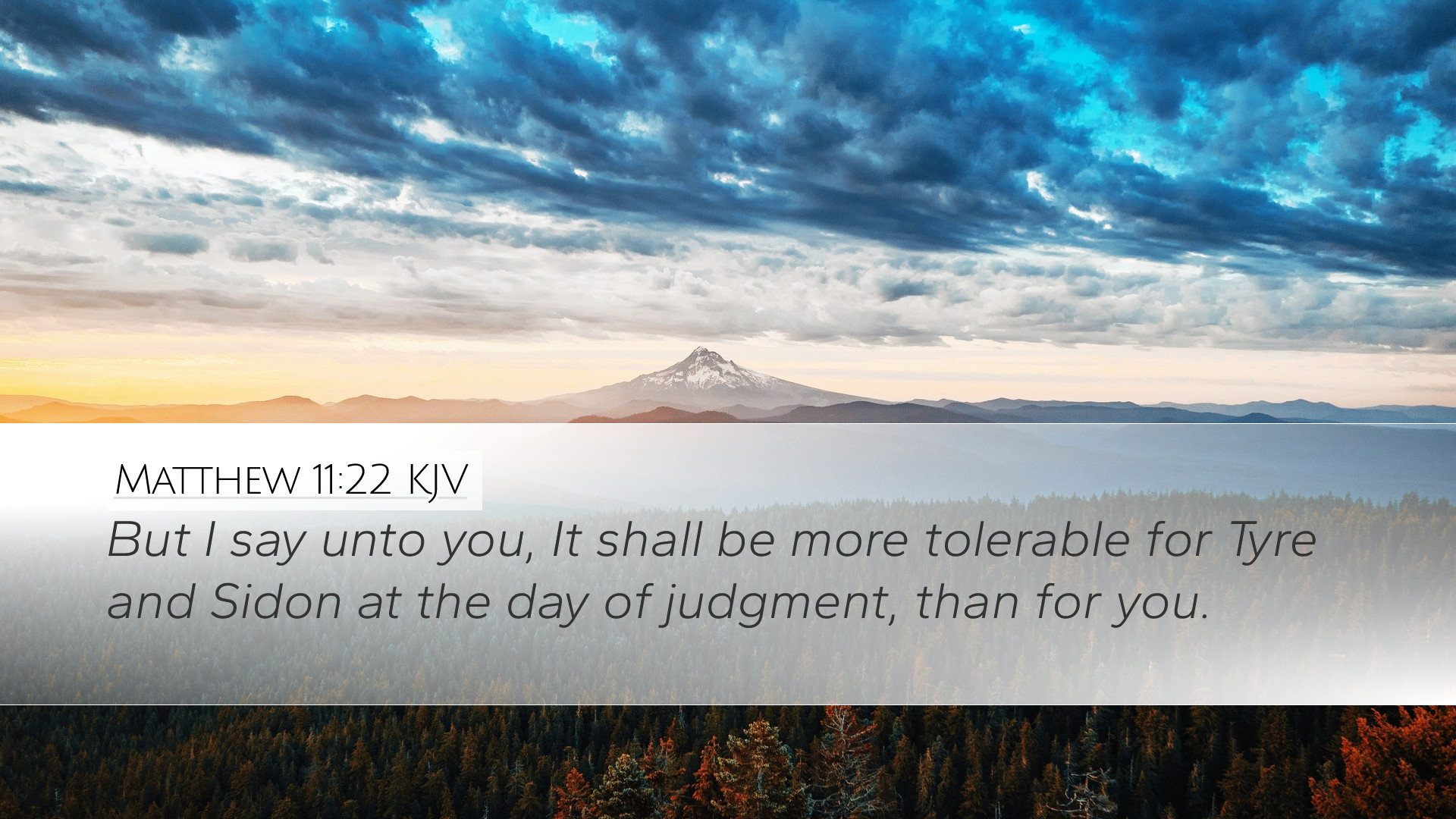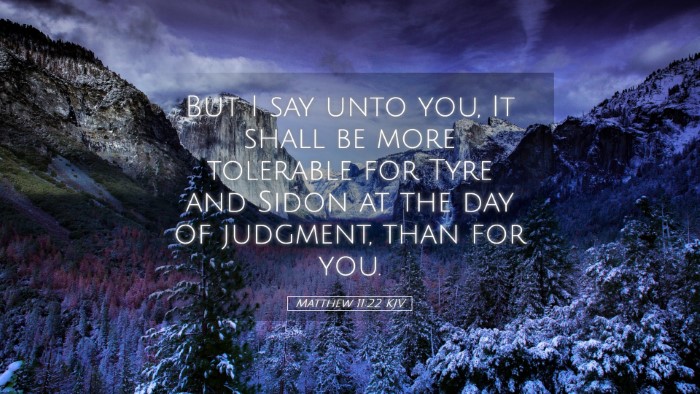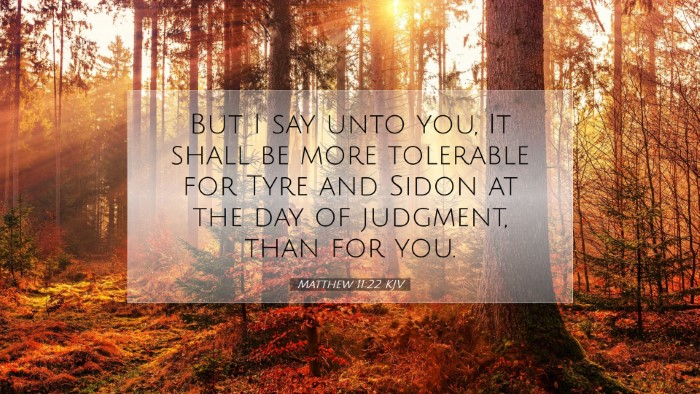Commentary on Matthew 11:22
Text: "But I say unto you, It shall be more tolerable for Tyre and Sidon at the day of judgment, than for you."
Introduction
This verse is a part of Jesus' mighty declaration concerning the cities of Galilee, where He performed His miracles yet faced great unbelief. The contrast between cities that experienced His works and the fate awaiting those who rejected Him is profound. In this commentary, we will explore insights from several public domain commentaries to derive a rich understanding of this pivotal verse.
Contextual Analysis
Matthew 11:22 is set against the backdrop of Jesus’ ministry, particularly His admonishment of Chorazin, Bethsaida, and Capernaum. As noted by Matthew Henry, these cities experienced the grace of Christ’s miracles, yet their hardness of heart placed them in grave danger.
Albert Barnes emphasizes that the more significant the communicative action of God (through miracles and teachings), the greater the responsibility of those who witness them to respond in faith.
The Significance of Tyre and Sidon
Tyre and Sidon, ancient Phoenician cities, are commonly associated with idolatry and moral decadence. They serve as a poignant comparison to the Garlean cities also under condemnation.
- Matthew Henry remarks that these cities were infamous for their sin, yet they did not witness the same miraculous works as those of Capernaum or Chorazin.
- Adam Clarke points out that Tyre and Sidon represent individuals or communities who would have received the call to repentance more favorably had they witnessed Christ’s miracles.
The Day of Judgment
The phrase "the day of judgment" introduces a critical eschatological theme found throughout the Bible. It denotes a time of reckoning where God’s justice will be fully realized.
Albert Barnes affirms that the judgment on individuals and cities will be based on their response to the knowledge and revelation God has given them.
The Concept of Accountability
Jesus’ warning to these cities carries an urgent message of accountability. Those who have known more of His grace bear a heavier burden in terms of judgment. This idea is echoed by both Matthew Henry and Adam Clarke who maintain that increased light brings increased responsibility.
- Henry notes that every privilege comes with additional responsibility; thus, the cities that enjoyed Christ’s presence should have turned to Him.
- Clarke reminds readers that this potential for forgiveness and redemption is often overshadowed by the refusal to accept the truth that is so clearly presented.
The Greater Tolerance for Sinners
The phrase "more tolerable" implies a divine grace even for those outside the covenant. It suggests that God's mercy extends wider than the confines of Israel.
This understanding resonates with Albert Barnes, who believes that this is a testament to God's justice wherein those who knew little yet acted righteously would be judged more favorably than those with greater knowledge yet displayed stubbornness in disbelief.
Practical Applications
The implications of Matthew 11:22 for believers today cannot be understated. Here are some reflections:
- Call to Faithful Witness: Those in the church today are challenged to reflect on their own response to God’s grace. Pastors, students, and scholars are called to consider how they spread the faith, especially in light of such significant access to biblical truth.
- Understanding God’s Justice: Believers must comprehend that God’s judgment is both fair and merciful, emphasizing that those with more light have more responsibility.
- Urgency in Evangelism: The greater condemnation of Capernaum should spur Christians to earnestly evangelize to those who hear but do not respond, showing compassion in our speech and actions.
Conclusion
Matthew 11:22 serves as a sobering reminder of the consequences of rejecting divine grace. The insights from public domain commentaries augment our understanding of accountability, mercy, and the broader implications of faithfulness among God’s people. As we ponder these truths, may we be motivated to walk closely with Christ and engage the world with the truth he has revealed.


